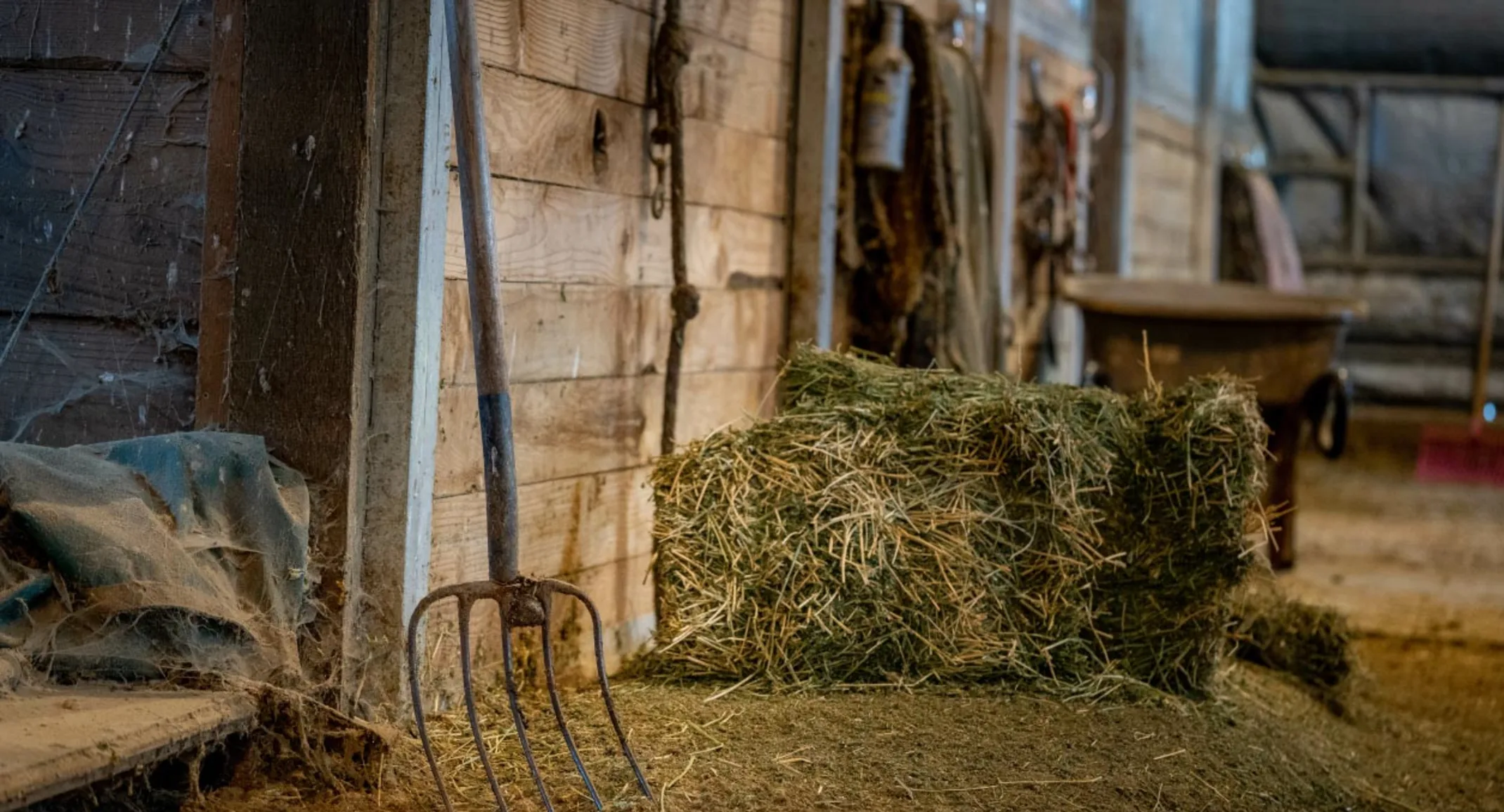Keeping Weight On
General

As summer is quickly fading into autumn, I hope you are out with your horses enjoying the cooler weather. One question that is commonly on horse owners’ minds during this time of year is whether their horse will easily maintain its weight through the coming winter months. Some horses are chronically difficult to keep in adequate body condition, and some lose weight every winter only to regain it during the spring and summer. If you have a horse that is either losing weight (and this is not because you’ve put him on an intentional diet) or one that will not gain weight, a thorough investigation of its health and lifestyle is warranted.
First, assess the horse’s living arrangements. Does it have access to adequate pasture? Most times, winter pasture is not nutritious enough to supply all of its caloric needs as it may during the spring and summer months. If the pasture is not adequate, is free-choice, good quality hay available at all times? Can the horse access the hay without being chased off by more dominant herd members? Would it be advisable to feed hay in several locations to prevent competition?
The horse’s comfort level should be assessed next. If he spends all of its time outside, is a dry, comfortable run-in shed available for it so that he can escape the weather? Is it shivering? If a horse commonly loses weight during the winter, supply it with a warm, waterproof, breathable turnout blanket. It will not expend as much energy to stay warm and is more likely to maintain his weight more easily. Shivering to stay warm burns a lot of calories. Is it lame, stiff, or sore? Many horses experiencing discomfort from lameness issues have difficulty maintaining their weight. If your horse appears uncomfortable, schedule an evaluation by your veterinarian to determine if this is the cause of his weight loss.
Thirdly, assess your horse’s workload. Are you supplying enough calories in the form of hay and grain to support the level of work your horse is performing? A horse that spends the winter months on vacation may need less feed than one that spends the colder months foxhunting twice weekly. If you work your horse more in the winter, increase its ration so that it can maintain his weight. Adding corn oil or rice bran is an excellent way of increasing your horse’s caloric intake without increasing the amount of grain that he is receiving.
If all of these things seem to be in order but it is still losing weight, you need to take a close look at your horse’s overall health. Schedule an appointment with your veterinarian to make sure that there are no underlying medical issues that are contributing to its poor condition. Several medical conditions that can cause weight loss are cancer, kidney disease, ulcers (both gastric and colonic), maldigestion, a large parasite burden, chronic infections, and poor dental health. A thorough veterinary evaluation, including a physical exam, a dental exam, bloodwork, and a fecal exam, can help rule out some of these issues. Treating any medical conditions should help the horse regain his weight in a timely manner.
As always, remember that you are responsible for your horse’s well-being and happiness. Do what is necessary to ensure that it spends the winter in good body condition and comfort.
Michelle Egli, DVM
Delmarva Equine Clinic
